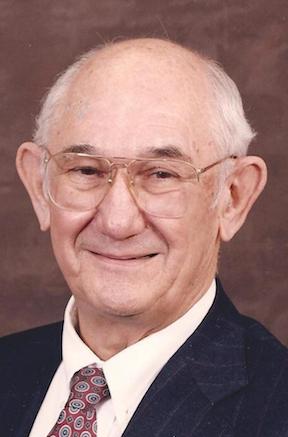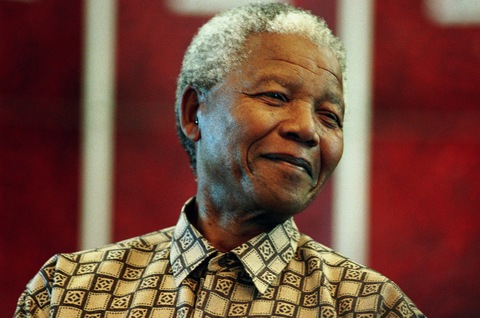by Desmond Tutu
For 27 years, I knew Nelson Mandela by reputation only. I had seen him once, in the early 1950s, when he came to my teacher-training college to judge a debating contest. The next time I saw him was in 1990.
When he came out of prison, many people feared he would turn out to have feet of clay. The idea that he might live up to his reputation seemed too good to be true. A whisper went around that some in the ANC said he was a lot more useful in jail than outside.
When he did come out, the most extraordinary thing happened. Even though many in the white community in South Africa were still dismissing him as a terrorist, he tried to understand their position. His gestures communicated more eloquently than words. For example, he invited his white jailer as a VIP guest to his inauguration as president, and he invited the prosecutor in the Rivonia trial to lunch.
What incredible acts of magnanimity these were. His prosecutor had been quite zealous in pushing for the death penalty. Mandela also invited the widows of the Afrikaner political leaders to come to the president's residence. Betsie Verwoerd, whose husband, HF Verwoerd, was assassinated in 1966, was unable to come because she was unwell. She lived in Oranje, where Afrikaners congregated to live, exclusively. And Mandela dropped everything and went to have tea with her, there, in that place.
He had an incredible empathy. During the negotiations that led up to the first free elections, the concessions he was willing to make were amazing. Chief Buthelezi wanted this, that and the other, and at every single point Madiba would say: yes, that's OK. He was upset that many in the ANC said Inkatha was not a genuine liberation movement. He even said that he was ready to promise Buthelezi a senior cabinet position, which was not something he had discussed with his colleagues. He did this to ensure that the country did not descend into a bloodbath.
He said of the Afrikaners: you can very well understand how they must be feeling. He reached out to them using the symbol of the South African rugby team, the springbok, which was excoriated by many black people as a symbol of Afrikaner power.
Rugby was the white man's sport, especially for Afrikaners, and Mandela's master stroke at the World Cup final was when he strode on to the turf wearing his Springbok jersey. Almost any other political leader would have seemed gauche, but he carried it off with aplomb. The whole arena, which was probably 99% white, mostly Afrikaner, erupted into cries of "Nelson! Nelson!" It was extraordinary. And who would have believed that in the townships they would be celebrating a rugby victory?
Of course I saw him angry. After the Boipatong massacre, in 1992, in which 42 people died, the ANC pulled out of negotiations, and he was quite livid. He claimed the intelligence services had warned [the president] FW de Klerk something untoward was going to happen, that there was collusion between the security forces and Inkatha. I don't know whether De Klerk ignored that warning. Madiba said it was clear black lives meant nothing.
Another time, he told me that when he and De Klerk were at the Nobel peace prize ceremony in Oslo, something had upset him greatly. There was a group singing Nkosi Sikelel' iAfrika, regarded as the anthem of the liberation struggle, and De Klerk and his wife talked through the singing; they didn't show respect.
But his anger was never greater than his patience or forgiveness. People say, look at what he achieved in his years in government – what a waste those 27 years in prison were. I maintain his prison term was necessary because when he went to jail, he was angry. He was relatively young and had experienced a miscarriage of justice; he wasn't a statesperson, ready to be forgiving: he was commander-in-chief of the armed wing of the party, which was quite prepared to use violence.
The time in jail was quite crucial. Of course, suffering embitters some people, but it ennobles others. Prison became a crucible that burned away the dross. People could never say to him: "You talk glibly of forgiveness. You haven't suffered. What do you know?" Twenty-seven years gave him the authority to say, let us try to forgive.
One of the greatest traumas of his life is what happened between him and Winnie. He really loved Winnie. Soon after he came out of jail, I invited them for a Xhosa meal. And as they sat there, you can't imagine anyone more besotted. The hurt was deep. It's marvellous that he found Graça. But you feel a little sad, because Winnie went through so much, and it would have been a perfect ending to a fairytale had they lived happily ever after.
The most fitting memorial to Mandela is to make a success of what he helped to establish. He was clear that, ultimately, no one is indispensible. He was a great one for stressing that he was a loyal member of the ANC, and that no one was bigger than the movement. But, of course, we know better.
Anyone, anywhere in the world, who gets to be a leader knows that here is the benchmark. And they must ask themselves: how do I measure up?
Desmond Tutu is an archbishop emeritus and human rights activist
 Monday, December 9, 2013 at 7:12PM
Monday, December 9, 2013 at 7:12PM 







